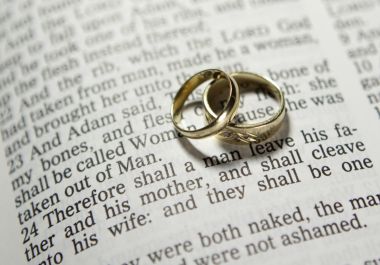Marriage doctrine is for Church of England to decide, Parliament told

The Church of England's representative in the House of Commons has told Parliament to stay out of its doctrine on marriage.
Andrew Selous, Conservative MP for South West Bedfordshire and the Second Church Estates Commissioner, raised concerns about the Church of England's religious freedom in his response to a ten minute rule motion introduced by Ben Bradshaw MP.
Mr Bradshaw asked the Commons on Tuesday "that leave be given to bring in a Bill to enable clergy of the Church of England to conduct same sex marriages on Church of England premises in certain circumstances".
His Bill is backed by a coalition of high profile MPs, including former deputy Labour leader Harriet Harman, Tory MP and former lord chancellor, Robert Buckland, former foreign secretary, Dame Margaret Beckett, and Sir Peter Bottomley, the Conservative father of the House.
It is a response to the vote in the Church of England's General Synod last month to introduce blessings for same-sex couples while retaining its doctrine on marriage as a lifelong union between a man and a woman.
Under the plans, churches will be allowed to hold services of prayer and blessings for same-sex couples but they will not be permitted to wed them.
In his speech to MPs, Mr Bradshaw said, "The House might ask why this is a matter for MPs and for Parliament.
"Well, the Church of England is not just some sect; it is the established Church in England. It was established by Parliament and still has its Church or canon laws approved by Parliament.
"The monarch is its Supreme Governor; its bishops are appointed by the monarch on the advice of the Prime Minister and sit in the other place; it runs thousands of schools across England.
"With those privileges of establishment comes a duty to serve the whole nation—to be there for all citizens."
During his speech, Mr Bradshaw, who is in a civil partnership, said that evangelical parishes opposed to the plans were "homophobic" and claimed that there was a "minority" in the Church who "are holding the majority back".
"The Church leadership should stop indulging them and focus on their primary mission to the majority of Anglicans here," he said.
"That might also make it easier for them to focus on the many important things the Church has to say and offer about the 21st century."
In reply, Mr Selous asked that Parliament respect the views of Synod and leave matters of doctrine to the Church's own democratically elected parliament.
"I do not intend to divide the House, but it is necessary to respond to the Bill in my capacity as Second Church Estates Commissioner because it seeks to usurp the role of the democratically elected General Synod of the Church of England, as well as to remove the freedom of the Church of England to decide its own doctrine, a freedom that members from all parts of this House champion for religions and beliefs all over the world and one that we should therefore apply equally to the Church of England," he said.
"There are passionately held and differing views about same-sex marriage on both sides of the House and I am also acutely aware of the personal pain and hurt that the issue causes for so many people, but it is for the democratically elected assembly of the Church of England, the General Synod, to decide matters of doctrine rather than Parliament.
"That has been the settled convention for nearly 50 years, since the 1974 worship and doctrine Measure was approved by Parliament."
He continued, "Directing the Church of England on doctrine is not the job of Parliament. It would infringe on settled principles of religious freedom, for which we argue for our sisters and brothers overseas, and it would also call into question the rights and protections of conscience for other denominations and faiths."
The Bill is to receive a second reading on 24 November.
Although most Ten Minute Rule Bills do not become law, they are often used by MPs to draw attention to particular issues.
Mr Bradshaw said he hoped his Bill "sends a clear message to the Church of England leadership about where Parliament stands on these matters".











